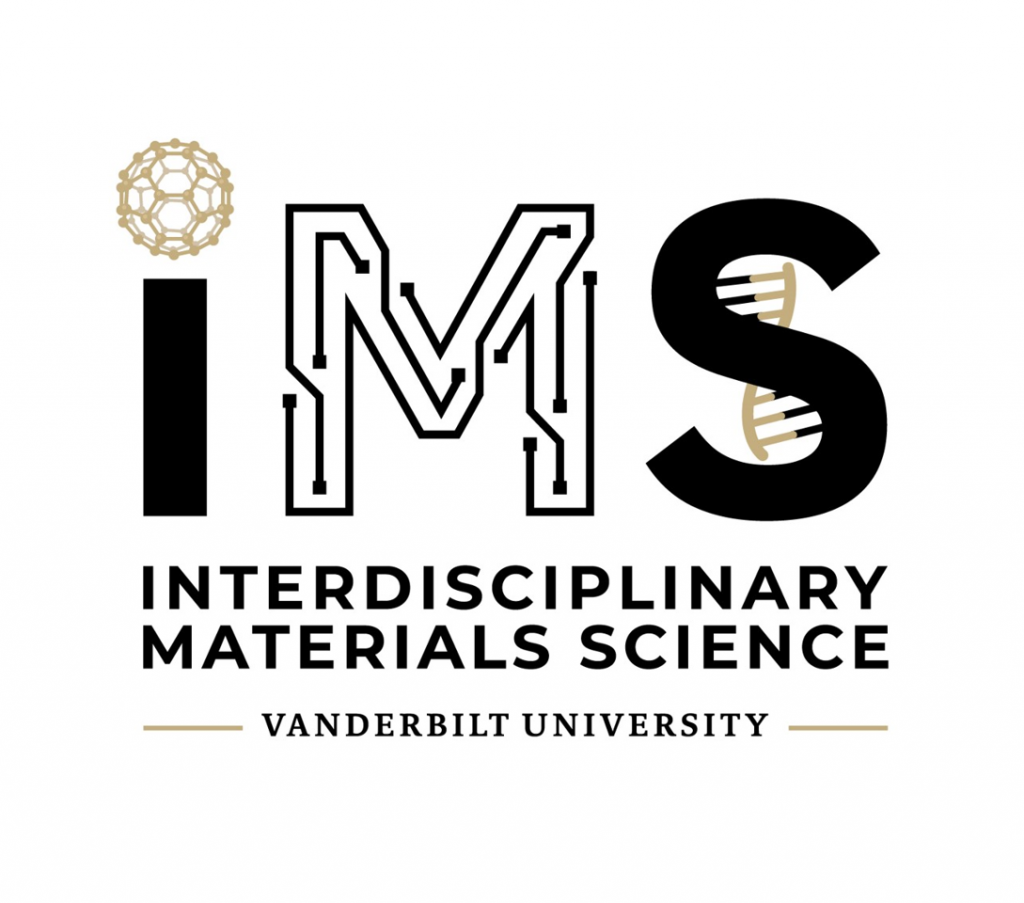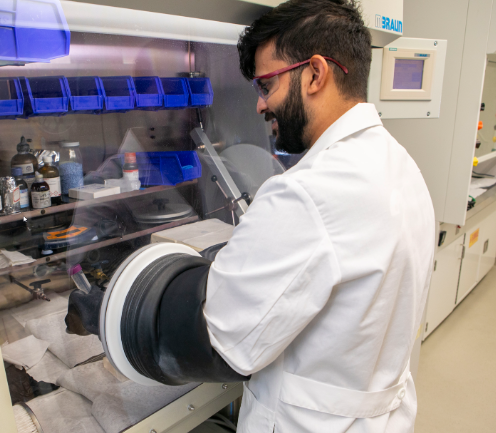Discover Your Path in Materials Science at Vanderbilt
 IMS gives you the freedom to shape a Ph.D. experience as unique as your research interests. With more than 30 full-time faculty and a wide range of courses, you’ll have endless opportunities to explore your ideas. From hands-on research in advanced labs to collaborations with Oak Ridge National Laboratory, students gain exposure to groundbreaking science and world-class expertise. A competitive stipend package makes it possible to focus on what matters most: innovating, discovering, and advancing the future of materials science.
IMS gives you the freedom to shape a Ph.D. experience as unique as your research interests. With more than 30 full-time faculty and a wide range of courses, you’ll have endless opportunities to explore your ideas. From hands-on research in advanced labs to collaborations with Oak Ridge National Laboratory, students gain exposure to groundbreaking science and world-class expertise. A competitive stipend package makes it possible to focus on what matters most: innovating, discovering, and advancing the future of materials science.
Our Research
Materials innovations improve quality of life and fuel the development of new technologies. At Vanderbilt, research in materials science thrives on collaboration across disciplines; engineering, chemistry, physics, medicine, and beyond. This spirit of interdisciplinarity drives both our teaching and our research, enabling IMS students and faculty to tackle society’s most pressing challenges.


Our Graduate Program
IMS graduate students create their own path, drawing from courses across chemistry, physics, medicine, and all engineering departments. Whether your interests lean toward entrepreneurship, advanced energy, biomedical applications, or computational modeling, you can tailor your Ph.D. to fit. Through VINSE, students also benefit from state-of-the-art facilities for imaging, nanofabrication, and materials processing, providing the tools needed to translate ideas into impact.

Faculty
Meet the faculty driving discovery in materials science and learn more about their cutting-edge research.
Undergraduate Degree Programs
Two undergraduate options involving materials science and engineering are available.
- Students pursuing a B.S. in engineering science may choose a program concentration in materials science and engineering. This option requires the student to take MSE 1500, 1500L, and 2500, and other materials science and engineering elective courses to complete their 24 hours of engineering program electives.
- The minor in materials science and engineering provides the student with an understanding of engineering materials. It complements and adds to the student’s major in one of the engineering disciplines, exposing the student to an interdisciplinary approach to problem solving. This option requires 16 hours of courses, of which 7 hours are devoted to MSE 1500, 1500L, and 2500. The remaining 9 hours are elective, chosen from a list of courses found in the Undergraduate Catalog.
